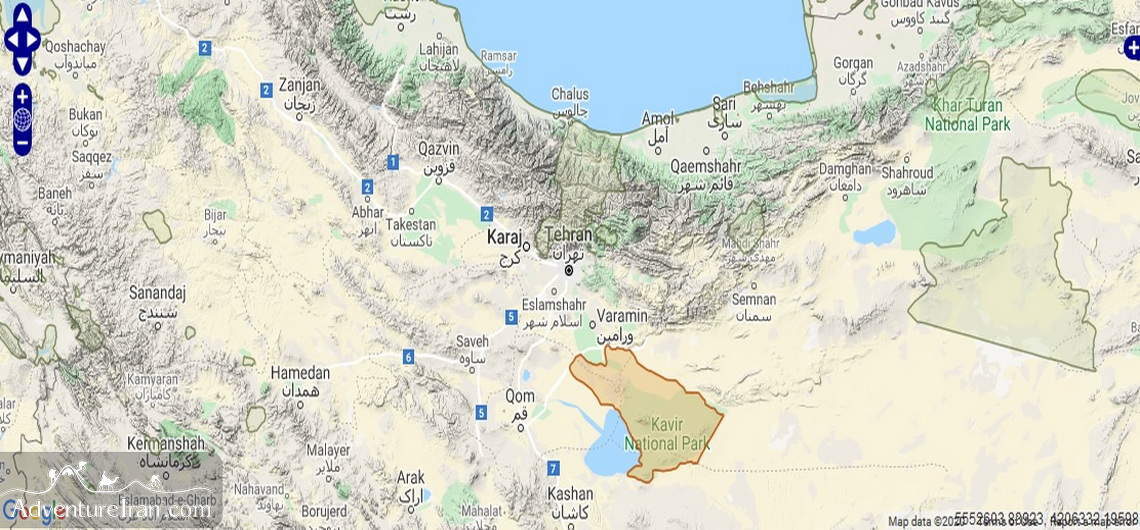Kavir National Park Dasht-e Kavir Desert Kavir National Park is part of Dasht-e Kavir Desert, the biggest desert in Iran. It is a specifically protected area located in the south-east of Tehran province and east of the two cities of Qom and Kashan. It is also situated in the west of the Dasht-e Kavir Desert. The distance from Tehran is 120 kilometres. Mount Siahkuh, (Black Mountain), is a large, semi-circular rock outcropping located roughly in the park's centre. The Iran Environmental Organization protects the wildlife and seasonal birds that live around this mountain. The famous Asiatic cheetah, Persian zebra, mountain wild goat, jackal, desert fox, hyena, wild cat and panther are registered on the park wildlife list. Eagle, pheasant, flamingo, geese and crane are just some of the birds inhabiting this national park. Also, the area has valuable flora and fauna reserves. Kavir National Park was on the route of the Ancient Silk Road made famous in the books of the renowned travel writers, Alfons Gabriel and Sven Hedin. Centuries ago, it was the route of caravans and merchants who crossed this part of the desert for trading. Still in existence are a couple of the crucial caravanserais inside this national park. Shah Abbasi caravanserai, (Gasre Bahram), is one of them that has been renovated and used as temporary accommodation. Adventure Iran has a number of trekking, mountain biking and 4x4 desert safari tours in this region. In addition, our famous cycling tour, Cycling through the main highlights of Iran, also passes through Kavir National Park. As the park is registered on the list of Iran’s National Parks, a permit for each traveller is required to enter and which needs to be applied for in advance. https://www.adventureiran.com/maranjab-desert/ https://www.adventureiran.com/dasht-e-kavir/
Kavir National Park Dasht-e Kavir Desert Kavir National Park is part of Dasht-e Kavir Desert, the biggest desert in Iran. It is a specifically protected area located in the south-east of Tehran province and east of the two cities of Qom and Kashan. It is also situated in the west of the Dasht-e Kavir Desert.

